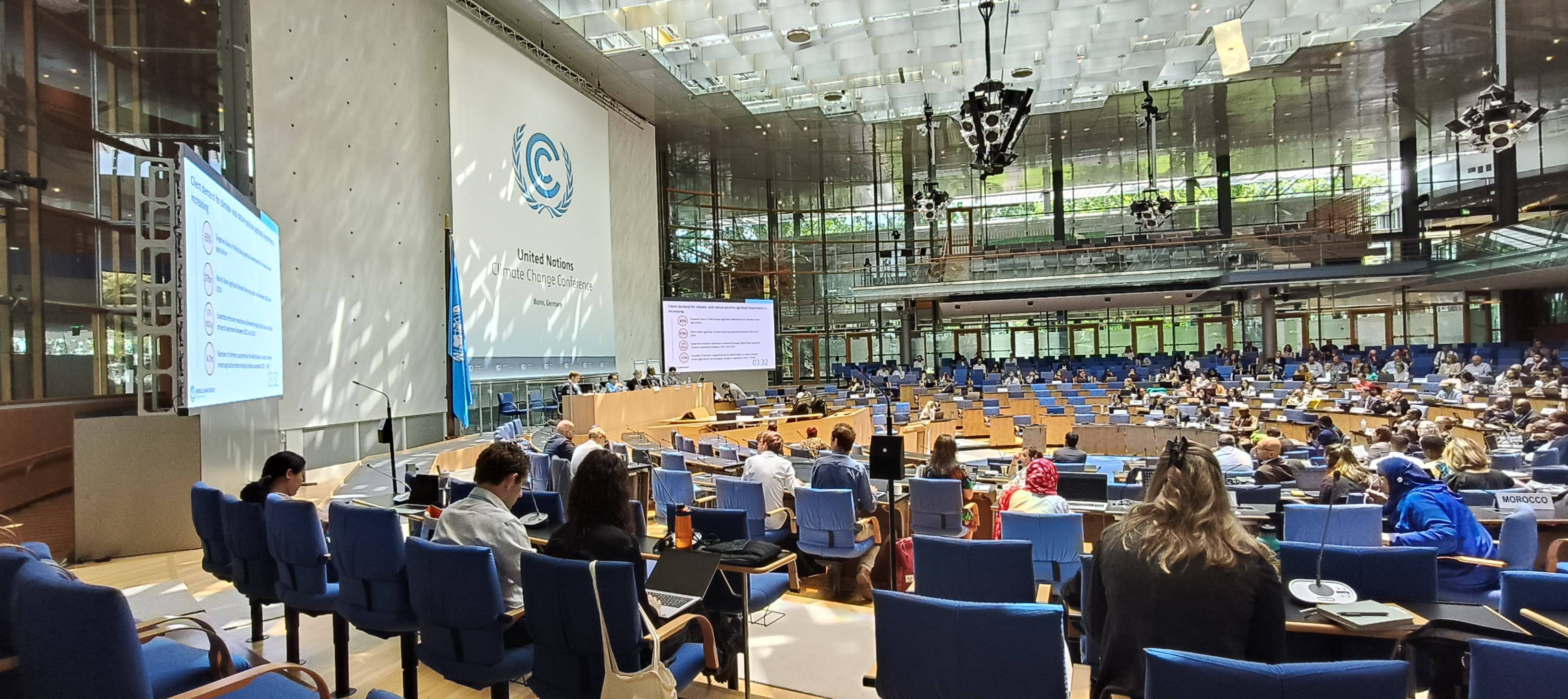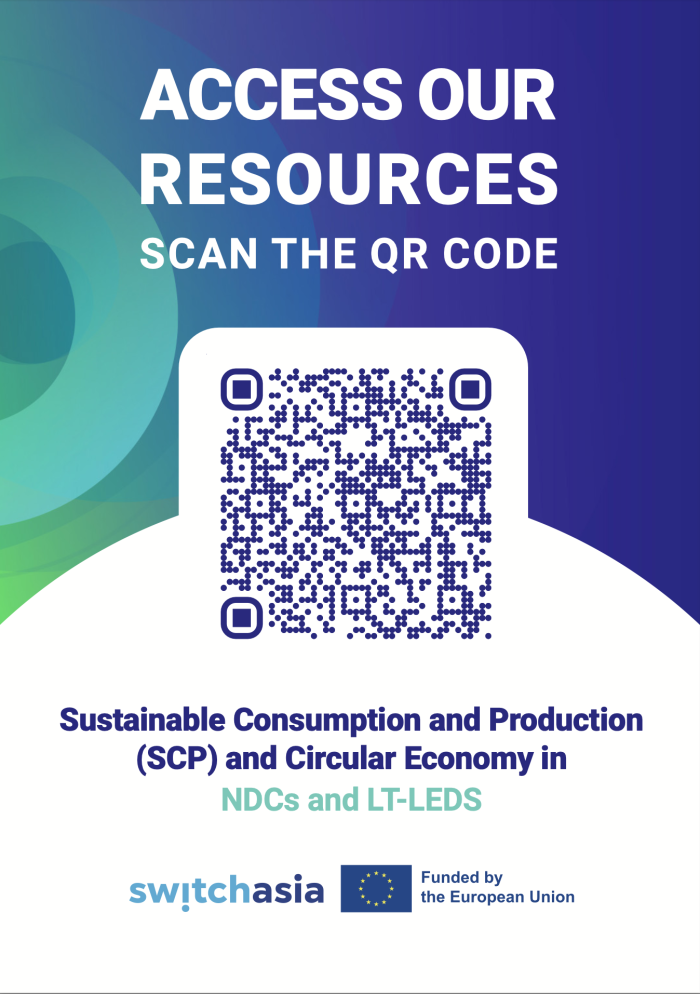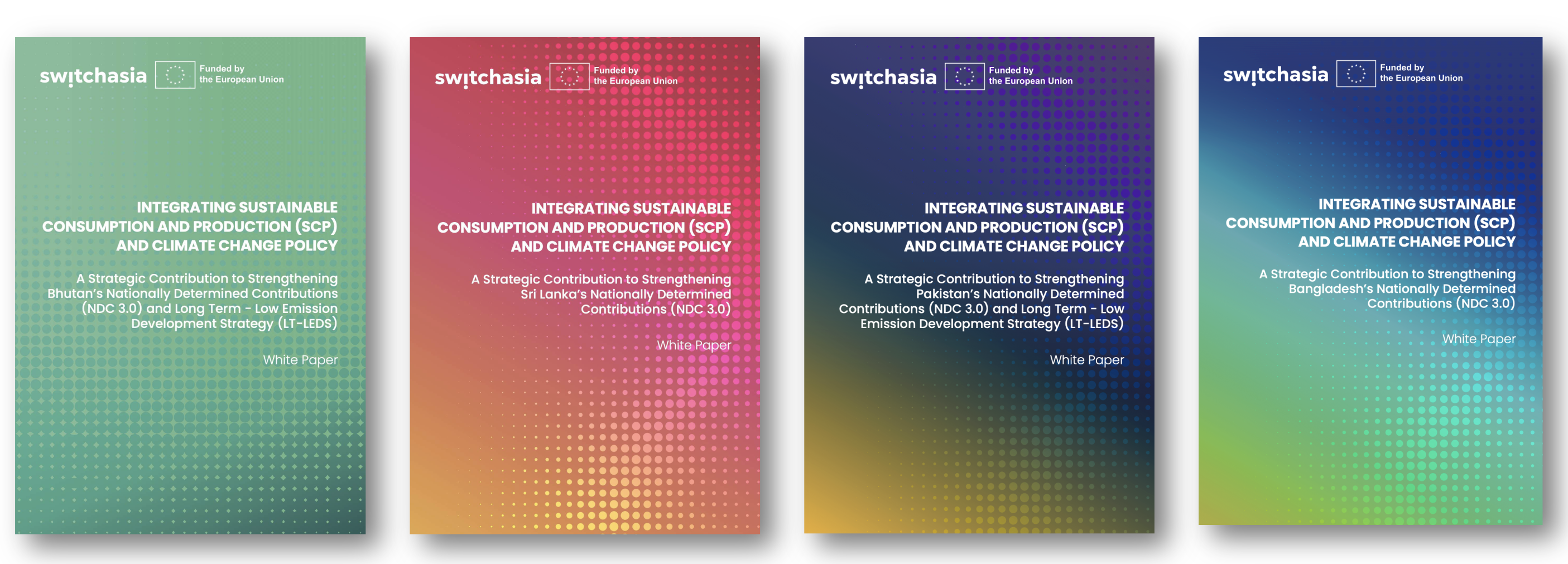
This week, as global climate change policy makers and advocates convene in Bonn for the 62nd session of the Subsidiary Bodies (SB62) of the UNFCCC, the world edges closer to an important climate milestone: the submission of updated Nationally Determined Contributions (NDCs) under the Paris Agreement. These enhanced commitments must reflect the urgency set forth by the IPCC and the Global Stocktake, emphasizing that countries must capitalize on every available lever to reduce emissions and enhance resilience, especially if we are to limit global temperature rise to 1.5°C.
One of the most promising, yet underexploited, leverages is material resource efficiency. According to the International Resource Panel’s Global Resources Outlook 2024, over 60% of global greenhouse gas emissions come from the extraction, processing, and use of material resources. This reveals a powerful nexus between climate change mitigation and the need to transform how we consume and produce.
The EU SWITCH-Asia programme, a uniquely positioned EU initiative operating across Asia and the Pacific to promote Sustainable Consumption and Production (SCP) and Circular Economy (CE) is considering climate change contributions within its overall programme scope. Unlike conventional climate programmes, SWITCH-Asia works upstream at the policy level, providing tailored Technical Advisories (TAs) to support countries in integrating SCP and CE into their NDCs and Long-Term Low Emissions Development Strategies (LT-LEDS).
On the inception of UNFCCC SB62, SWITCH-Asia published a set of White Papers from Bangladesh, Bhutan, Nepal, Pakistan, and Sri Lanka, offering strategic pathways to integrate SCP and CE into climate ambition targets. These papers reflect deep in-country policy assessments and inclusive stakeholder consultations and provide practical, sector-specific integration guidance.
In Sri Lanka, the white paper identifies industrries including textiles, tourism, and construction sectors as high-impact areas for SCP and CE integration. Notably, the textile industry—a key export sector—can enhance competitiveness through energy transition and circular practices. The construction sector is encouraged to adopt passive architecture and enforce green building codes, while tourism can benefit from SCP-linked certifications and community-based models. Sri Lanka’s experience also highlights the need for robust MRV systems, strengthened institutional capacity, and enabling policies to leverage green finance.
In Bhutan, SCP is framed as a critical enabler of the country’s carbon-neutrality ambition. The white paper spotlights cottage and small industries (CSIs)—which account for 95% of Bhutan's industries—as innovation and employment engines deserving SCP-NDC integration. Bhutan also sees clear potential in agriculture, waste, construction, and tourism, and calls for greater awareness-building, the creation of knowledge hubs, and defined roles for private sector engagement to accelerate SCP adoption.
What makes SWITCH-Asia’s intervention unique is its emphasis on systemic transformation, shifting the conversation from project-based actions to enabling policy frameworks, institutional integration, and long-term planning. By linking SCP to both SDG 12 and the Paris Agreement, the programme not only advances climate ambition but also supports sustainable development more broadly.
Importantly, the 2024 Global Resources Outlook reinforces this systemic vision. It highlights that enhanced material efficiency, responsible consumption patterns, and sustainable resource use not only mitigate climate change but also yield massive co-benefits in health, biodiversity, and water security. This comprehensive lens is precisely what SCP and CE integration brings to NDC 3.0.
It is encouraging to see the interest and excitement building among countries in Asia-Pacific to embed SCP and CE in their enhanced NDCs. The willingness to explore SCP-CE pathways, as seen in Bhutan and Sri Lanka, signals a region-wide momentum for more holistic climate action.
As countries prepare their NDC 3.0 submissions, the tools and insights provided by SWITCH-Asia offer a timely and critical addition to the climate policymaker’s arsenal. They remind us that climate action is not just about decarbonizing energy systems, it is about rethinking how we build, consume, and grow. Integrating SCP and CE into national climate strategies may well be the game-changer we need.
Publications
 - Download Bhutan White Paper
- Download Bhutan White Paper
- Download Sri Lanka White Paper
- Download Pakistan White Paper
- Download Bangladesh White Paper



